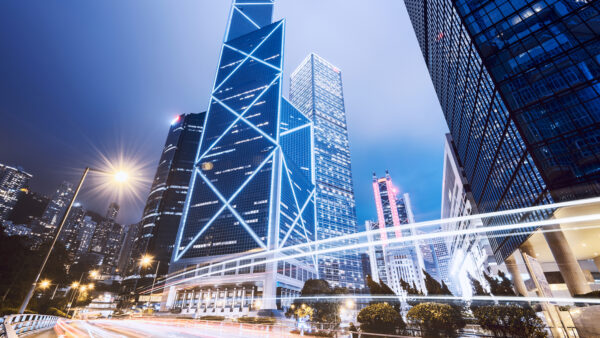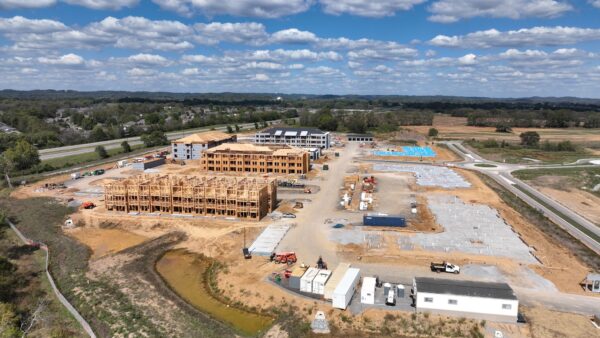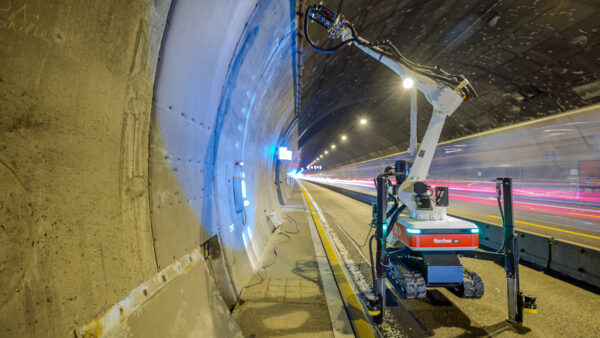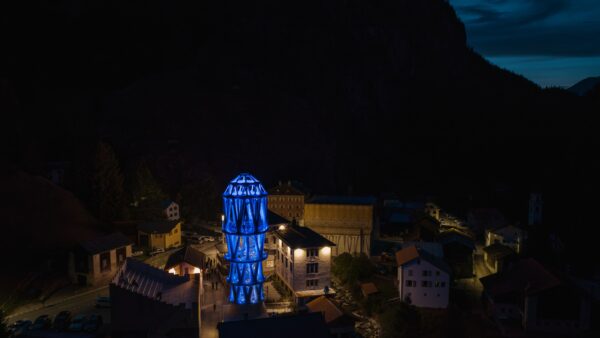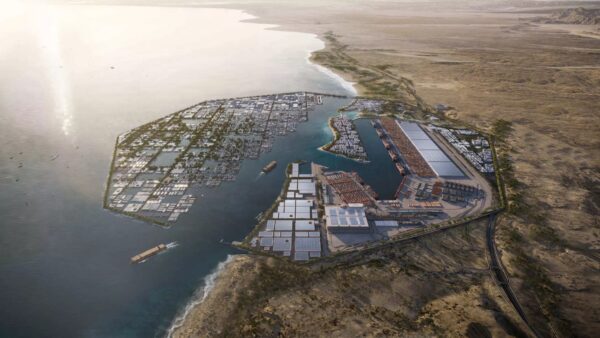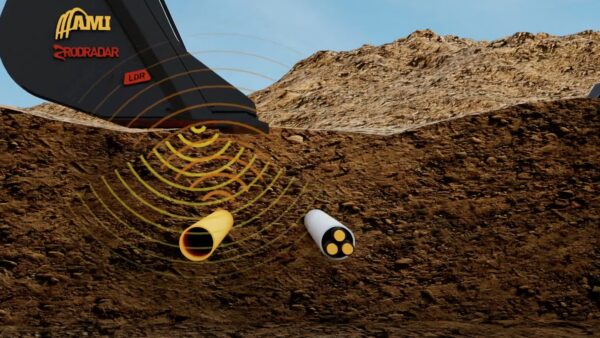A Dutch construction firm has gone back to the drawing board with its trial of glow-in-the-dark road markings that absorb ultraviolet light during the day to guide drivers at night.
The lines were painted onto a stretch of road in the Netherlands earlier this month for testing, and researchers found that the stripes are not water-resistant enough and don’t give off a consistent level of light, Dutch public broadcaster NOS reported.
The lines have now been faded so they don’t confuse drivers.
The pilot, carried out by developer and infrastructure firm Heijmans in cooperation with artist Daan Roosegaarde, saw a 500m stretch of the N329 road near Oss, in the Netherlands, marked with the UV-absorbing paint on 10 April.
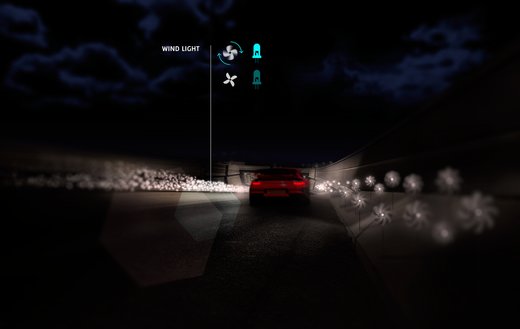
The “Smart Highway” concept includes road lights powered by the wind cars create (Studio Roosegaarde & Heijmans)
Heijmans told GCR that the lines contain a tiny voltage feed designed to keep the intensity and duration of lighting constant, despite the weather.
The system was tested in Heijmans’ laboratory and on outside testing premises before going live on the N329.
In a statement today Heijmans said: “As expected the ‘real life’ trial enables us to learn from the environment and users, like humidity and user experience. We will use these insights to introduce an update to the Glowing Lines 2.0 version.
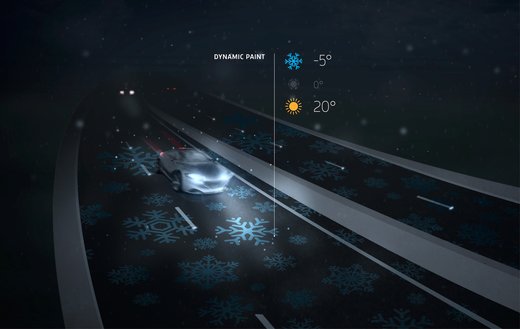
Studio Roosegaarde & Heijmans also envisage markings that respond to temperature to warn drivers (Studio Roosegaarde & Heijmans)
“In the meantime we have temporarily faded out the lining to prevent any confusing situations for road users.
“As planned we are working on developing Glowing Lines version 2.0, which will be ready for this summer. It will then be introduced on a larger scale in the Netherlands and abroad.”
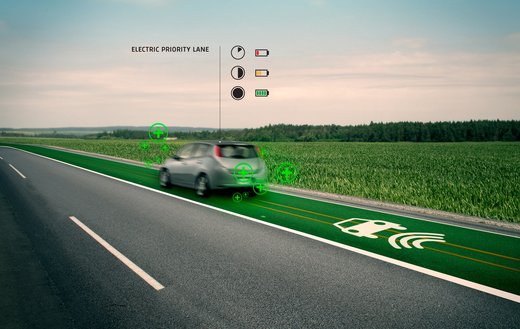
The vision includes electric cars using a priority lane fitted with induction chargers (Studio Roosegaarde & Heijmans)
Last week Heijmans and Daan Roosegaarde’s Studio Roosegaarde signed a three-year partnership agreement to develop their joint “Smart Highway” concept, which includes ideas such as temperature-sensitive markings to warn drivers of slippery conditions, induction-charging lanes for electric cars, and road lights powered by wind generated by passing cars.
Heijmans says it wants to become a “knowledge company”.

